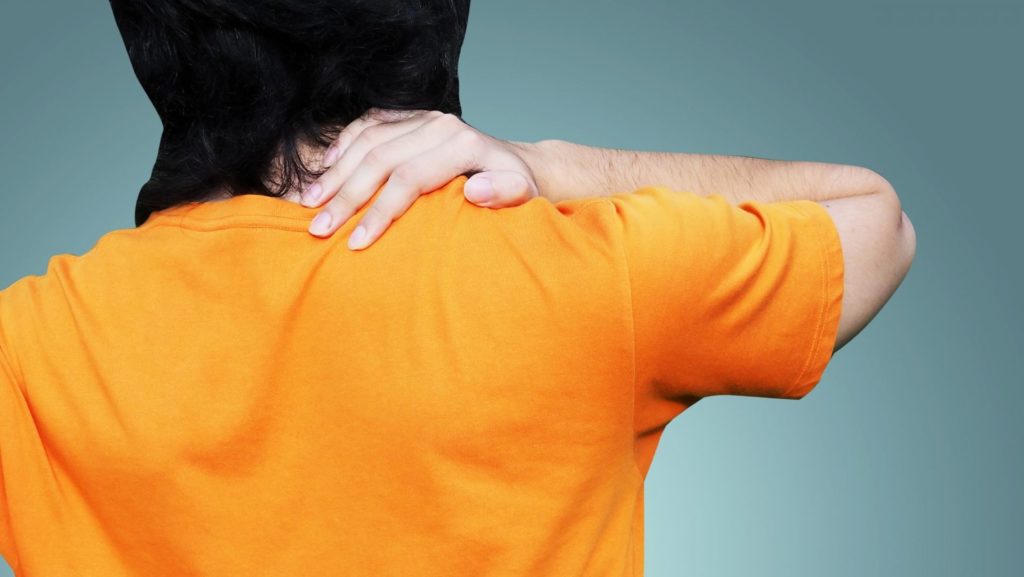The Effects of CBD on Fibromyalgia
Fibromyalgia is a chronic syndrome where people suffer persistent widespread pain, usually with multiple tender points in joints, muscles, tendons and other areas. Fibromyalgia patients also have fatigue, sleep problems, depression, anxiety, and headaches. It is unknown why fibromyalgia occurs, though it is thought to be caused or triggered by a number of factors including: Physical or emotional trauma, abnormal pain response, sleep disturbances, or viral infections. It also runs in families so there is a genetic component.
Conventional treatment of fibromyalgia includes pain relief and therapy to help reduce the effects of the condition. There are FDA approved medications approved for treating fibromyalgia but many patients are unhappy with the adverse side effects. These can include weight gain, nausea, insomnia, sweating, difficulty weaning off the medication, dizziness, headaches, and constipation.
How Fibromyalgia Patients Currently Use CBD
NOTE FOR FIRST TIME READERS: Cannabinoids – such as THC, CBD – and terpenes are the main medically active components in cannabis plants (aka marijuana). For more information on these components, and much more about the plant, see our section on the Science of Cannabis.
Many people with fibromyalgia report that they are self-medicating with cannabis. Most of the symptoms of fibromyalgia can be alleviated by CBD products, replacing multiple prescription medications – including pain medicines, anti-inflammatories, muscle relaxants, nerve pain reducers and sleep agents.
One study in 2006 looked at fibromyalgia patients who received daily doses of THC as the only pain reliever over a period of three months. All of them reported significant reduction in daily-recorded pain and electronically induced pain. Another study reported that the administration of a synthetic cannabinoid significantly decrease pain in 40 fibromyalgia patients in a randomized, double-blind, placebo-controlled trial. A 2011 study reported that fibromyalgia patients who used cannabis had a statistically significant reduction in pain and stiffness, they felt more relaxed and had improved sleep with an increased feeling of well-being.
Dr. Ethan Russo, a neurologist who has studied cannabis for many years, reported that cannabinoids have demonstrated the ability to block spinal, peripheral and gastrointestinal mechanisms that promote pain in a headache, fibromyalgia, IBS and related disorders. He suggested that patients suffering from these conditions might have an underlying clinical endocannabinoid deficiency that may be effectively treated with cannabinoid medicines.
What’s the Best Way to Use CBD for Fibromyalgia?
The type of medical marijuana used for fibromyalgia covers the whole scope of what’s available, depending on whether you’re treating pain, daytime fatigue or nighttime insomnia. See the appropriates sections for Insomnia, Chronic Pain, Depression and Intestinal Disorders. Remember that cannabis in all forms is a muscle relaxant and anti-inflammatory, so those benefits will be in all preparations. Typical doses of THC and/or CBD range from 10 to 25 mgs in an edible or tincture up to 3x/day. A CBD/THC mix of 1:1 up to 20:1 may be helpful. For those who want to inhale, there combinations can be found in vaporizer oil. For those who want to smoke, choice of strain depends on whether you want stimulation – sativas, relaxation or sleep -indicas, less psychoactivity – CBD rich, or more pain relief – THC rich.
References
Fiz J, Durán M, Capellà D, Carbonell J, Farré M. Cannabis use in patients with fibromyalgia: effect on symptoms relief and health-related quality of life. PLoS One. 2011, 6(4): e18440.
Russo E. Clinical endocannabinoid deficiency (CECD): Can this concept explain therapeutic benefits of cannabis in migraine, fibromyalgia, irritable bowel syndrome and other treatment-resistant conditions? Neuroendocrinology Letters. 2004, 25: 31-39.
Schley M, et al. Delta-9-THC based monotherapy in fibromyalgia patients on experimentally induces pain, axon reflex flare, and pain relief. Current Medical Research and Opinion. 2006, 22: 1269-1276.
Skrabek RQ, et al. Nabilone for the treatment of pain in fibromyalgia. The Journal of Pain. 2008, 9:1 64-173.
Ware M et al. The effects of a nabilone on sleep in fibromyalgia: results of a randomized controlled trial. Anesthesia and Analgesia. 2010, 110:604-610.



